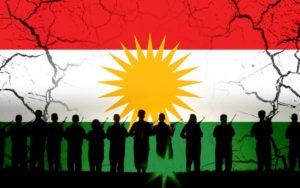
Key Takeaway: Iraqi politics are deadlocked. Several political parties and blocs boycotted the Council of Representatives (CoR) following the Sadrist protesters’ first breach of the Green Zone on April 30.
The Kurdish Alliance, a bloc that consisted of nearly one-fifth of the CoR, withdrew on May 5. The bloc has now split, and two of its component political parties, the Patriotic Union of Kurdistan (PUK) and Gorran, formally reunited on May 14 to create a new bloc. The PUK and Gorran were incentivized by the urgent need for financial assistance to the Kurdistan Regional Government (KRG) and likely by Iranian urging. A loan from the IMF in which Baghdad and the KRG will have a share proved decisive in incentivizing their cohesion. The PUK-Gorran Alliance will therefore likely strengthen ties between Baghdad and Arbil. Their rival, the Kurdistan Democratic Party (KDP), retains ambitions of regional independence and a stranglehold on political power in the KRG. The Kurdistan Democratic Party (KDP) will either have to reintegrate or seek new political partners. The PUK and Gorran will likely eventually return to the CoR. Although they are still negotiating with the KDP, Kurdish parties are unlikely to return the CoR as one entity, ending what had been a significant, cohesive bloc. The new political alliance will nevertheless shift the power dynamics of both Baghdad and Arbil.
Source: Institute for Study the War (ISW)
The Institute for the Study of War (ISW) is a non-partisan, non-profit, public policy research organization. ISW advances an informed understanding of military affairs through reliable research, trusted analysis, and innovative education. We are committed to improving the nation’s ability to execute military operations and respond to emerging threats in order to achieve U.S. strategic objectives. Visit us at www.understandingwar.org.








Comment here